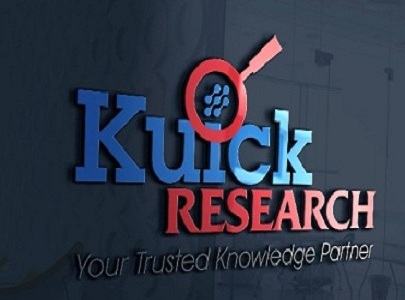
US Bispecific Antibodies Market and Clinical Pipeline Insight 2028 Report Highlights:
In the realm of biopharmaceuticals, bispecific antibodies have emerged as a revolutionary class of therapies, opening new frontiers in precision medicine. These innovative molecules are designed to simultaneously target two distinct antigens, unlocking the potential for transformative treatment approaches across various diseases. From oncology to autoimmune disorders, infectious diseases to neurodegenerative conditions, bispecific antibodies offer a clinical perspective that is reshaping patient care and inspiring new possibilities for precision therapies. In respect to this, the US market has emerged as frontrunner in commercializing this transformative therapeutic modality, and is now leading the development of bispecific antibodies, with several US based drugs makers having innovative bispecific antibodies candidates under development.
One of the key clinical perspectives of bispecific antibodies is their precision targeting capabilities. By engaging two specific antigens simultaneously, bispecific antibodies can be tailored to address unique molecular signatures of diseases. This precision targeting allows for more effective therapeutic interventions, minimizing off target effects on healthy tissues and reducing adverse events commonly associated with traditional treatments. Researchers in the US were the first to hypothesize the use of bispecific antibodies in cancer treatment, and pursuant research and clinical studies demonstrated bispecific antibodies to revolutionize the approach to cancer treatment. By precisely engaging immune cells to target cancer cells, these therapies unleash potent immune responses against tumors while sparing healthy tissues, leading to improved tumor control and better patient outcomes.
Clinical trials have demonstrated remarkable success in hematological malignancies, such as acute lymphoblastic leukemia (ALL) and multiple myeloma, as well as solid tumors like breast cancer and melanoma. The US bispecific antibodies market has witnessed the approval of several groundbreaking therapies that have extended survival rates, improved response rates, and provided new treatment options for patients with refractory or relapsed cancers. The US bispecific antibody market has also shown promise in addressing infectious diseases. Bispecific antibodies can be engineered to simultaneously neutralize pathogens and stimulate the immune system, boosting the body's ability to fight infections effectively.
US is also paving the way for innovative therapies in neurological disorders. Bispecific antibodies are being explored to target misfolded proteins implicated in neurodegenerative conditions like Alzheimer's and Parkinson's disease. By specifically targeting these pathological proteins and facilitating their clearance, bispecific antibodies offer a potential disease-modifying approach. The clinical impact of these therapies could potentially slow disease progression and improve the quality of life for patients living with these devastating neurological disorders.
From a clinical perspective, bispecific antibodies also hold promise in addressing treatment challenges posed by traditional therapies. For instance, drug resistance is a major obstacle in cancer treatment. Bispecific antibodies, with their dual-targeting capabilities, can circumvent resistance mechanisms and offer new avenues for patients who have exhausted conventional therapies. Additionally, the ability of bispecific antibodies to penetrate specific tissues or cross the blood-brain barrier allows for more effective delivery of therapies to disease sites that were previously difficult to target. This opens up possibilities for addressing neurological disorders and other conditions with limited treatment options.
The US has been at the forefront of biopharmaceutical innovation, consistently driving advancements in the field of medicine. In recent years, the country's clinical development of bispecific antibodies has not only transformed patient care within its borders but has also had a profound impact on the global market. As the first country to approve several bispecific antibodies therapies, the US has set standard for global regulatory agencies. International regulators often align their evaluation processes with the FDA's standards, benefiting patients worldwide by expediting approvals and facilitating access to transformative treatments.
The influx of global investment further bolsters RandD efforts, creating a virtuous cycle of progress. This infusion of funds enables companies to expand clinical trials, explore new therapeutic applications, and develop a more diverse pipeline of bispecific antibodies with broad-reaching clinical implications. The US leadership in the clinical development of bispecific antibodies has sparked numerous collaborations and partnerships on an international scale. Research institutions, companies, and clinicians from around the world seek to collaborate with US based organizations to access expertise, technologies, and resources.
These collaborations foster knowledge-sharing and resource pooling, contributing to a collective effort in advancing the global understanding of bispecific antibodies. Such partnerships have resulted in joint clinical trials and the exploration of diverse therapeutic applications across different countries. As the US continues to lead in research, clinical trials, and regulatory approvals, the global market for bispecific antibodies expands, providing new hope for patients facing complex diseases worldwide. Through pioneering efforts, collaborations, and investments, the US has positioned itself as a driving force in the evolving landscape of precision medicine. The impacts of its clinical developments have the potential to revolutionize patient care on a global scale.